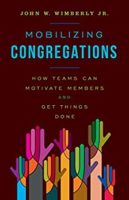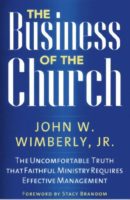by John Wimberly
In the church, we tend to think of strategic planning as involving a time frame of three to five years. That is a reasonable time frame for most plans. However, the church also needs an entirely different form of strategic planning that looks ahead 10, 20 or more years. This truth was driven home to me at a recent meeting of the board of directors of a large hospital in Washington, D.C., where I serve as a member.
I listened as the hospital’s director of nursing presented a PowerPoint presentation about the supply of nurses over the next 10-20 years. He explained that baby boomers will be retiring in large numbers. Meanwhile, a shortage of students in nursing schools today will lead to shortage of new nurses to replace them. Because of these two converging factors, the hospital is planning now how to address a nursing shortage a decade in the future. The hospital’s management is displaying strategic leadership.
Planning 20 years out
I couldn’t help but wonder, “Does the church think twenty years out? What are some long term issues we need to be considering in the church?” Surely, I hear much worrying about the aging demographics of our congregations. But can’t we do something other than worry about it? Can’t we think and plan strategically about longer term issues?
- What are the longer term theological trends? Will the evangelical and progressive approaches remain strong or will the church move back to more traditional understandings of church doctrine?
- Given the crazy busy schedules of people today, it is increasingly difficult to find volunteers to do church work. Will this continue over the next twenty years, get worse—or will future members contribute more time to their congregations?
- The church is charged with the task of communicating God’s love. What communication strategies and capabilities does the church need to develop over the next two decades to be an effective communicator in the middle of the 21st Century?
- As some judicatories sell the property of congregations that are closing, how will they get back into those neighborhoods 20-30 years from now when the neighborhood or town has been revitalized and would welcome the presence of a vital congregation? Having sold our property when the market is down, how will we get back into these communities when the market is high? For example, decades ago, the presbytery in Washington, D.C., sold a congregation’s property in a location that is now prime real estate in the middle of a neighborhood teeming with millennials. It would be a great location for a new church development if the presbytery hadn’t sold the property when the market was down. It would have been a great location for the church to have helped the neighborhood in its time of transition, especially the poor folks who were being pushed out.
- The last of the boomers won’t hit 70 until 2034! The oldest boomer clergy have started to retire, but boomer retirements will continue over the next 18 years. Are we doing the type of planning for a potential shortfall of clergy that hospitals are doing for a potential shortfall of nurses? If yes, it is a well-kept secret. Are we helping to navigate Gen-X clergy into congregations today where their experience and energy can be employed?
- With growing evidence that the era of unbridled growth of mega-churches is coming to an end, what will replace them as a place to nurture the spiritual needs of the hundreds of thousands of people who attend them? Given the millennials’ affinity for small, supportive communities, might the choice, ironically, be some of the very small congregations whose future is now in question?
These aren’t speculative concerns. With any kind of foresight, we can see that these are questions we need to start answering now. If not, it may be too late to implement the answers later when the future is the present. And yet where is the sense of urgency regarding our longer-term problems and opportunities? Or, will we just wing it and deal with things as they unfold? As with many things in life, the choice is ours to make or ignore.
John Wimberly is an experienced pastor and consultant. As a consultant, he has worked with congregations and judicatories on strategic planning, staff designs for the 21st century, and congregational growth as well as financial and administrative management. He has MBA, MDiv, and PhD (theology) degrees. His books focus on effective management and leadership. John believes congregations can have a bright future!




